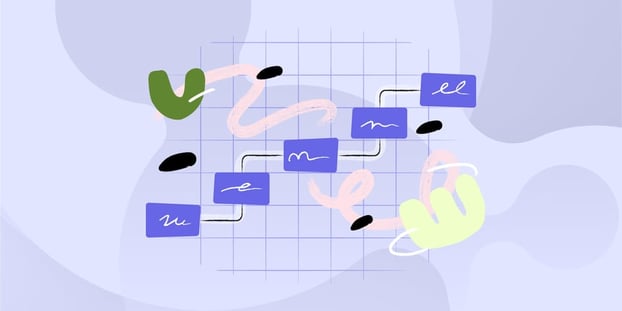Have you heard of Kaizen events? If not, you're missing out on a powerful tool that can help your business achieve significant improvements quickly. Kaizen events are rapid improvement projects that bring together cross-functional teams to identify and eliminate waste, reduce costs, and improve efficiency in a specific area of your organization.
A Kaizen event seeks to make significant improvements quickly, with a clear understanding of the objectives and the metrics for measuring success. In this article, we’ll explore the key components of Kaizen events, including preparation and planning, execution, and follow-up. So, let's dive into Kaizen events and discover how they can benefit your organization!
What are Kaizen events?
Kaizen events, or Kaizen blitz or rapid improvement events, are structured, short-term projects to improve a process or solve a specific problem within an organization. They are intense, focused, and typically last anywhere from three days to two weeks.
Kaizen events are based on the philosophy of continuous improvement and the principles of Lean, which focus on identifying and eliminating waste to improve efficiency and reduce costs. During a Kaizen event, a cross-functional team, including employees from different levels and departments, comes together to analyze and optimize a specific process or system.
A Kaizen event aims to implement improvements quickly, using a structured approach that includes identifying areas for opportunity, analyzing the current process, and developing and implementing solutions. This structured approach is typically divided into three phases: preparation and planning, execution, and follow-up.
The concept of Kaizen events originated in Japan, where companies such as Toyota used them to improve their operations continuously.
Benefits of Kaizen events
The main objectives of Kaizen events are to:
- Eliminate waste: Kaizen events aim to identify and eliminate unnecessary steps or activities that do not add value to the process or product.
- Improve quality: By removing waste and focusing on continuous improvement, Kaizen events can help improve product and service quality.
- Increase efficiency: Kaizen events aim to optimize processes, reduce lead times, and increase throughput, resulting in increased productivity and efficiency.
When to use Kaizen events
Kaizen events are an effective tool for improving processes and systems in a business. Organizations use them when there is a need for rapid improvement or optimization. Here are some situations where Kaizen events can be beneficial:
1. When you need to improve a process
Kaizen events can help improve any business process, from manufacturing to administrative functions. When a process is inefficient, causing delays or errors, a Kaizen event can be helpful to identify and eliminate waste, streamline the process, and improve quality.
2. When you launch a new product or service
A Kaizen event can help identify areas for improvement in the development and release process. By bringing together a cross-functional team, businesses can identify and resolve issues quickly and efficiently, ensuring a successful launch.
3. When you have to reduce the cost
Kaizen events can help to identify and eliminate waste, reduce unnecessary spending, and optimize resources.
4. When you want to train employees
Organizations can use Kaizen events as a training tool for employees. By involving employees in a Kaizen event, they can learn problem-solving skills and process improvement techniques and better understand the organization's goals and objectives.
4 keys to a successful Kaizen event
Preparation and planning
A successful Kaizen event requires proper planning and preparation. The first step is to identify the problem or area of improvement that the event will focus on. Once you have identified the problem, you should assemble a team of stakeholders and subject matter experts to plan and execute the event.
During the planning stage, the team should set specific goals and objectives for the event, which should be specific, measurable, achievable, relevant, and time-bound (SMART). The team should also develop a detailed action plan that outlines the steps needed to achieve the objectives. This plan should include a timeline, task assignments, and the use of Lean Six Sigma tools to guide the team's efforts.
Execution of Kaizen events
Once the planning is complete, it's time to execute the Kaizen event. The team should start by reviewing the current process and identifying areas of improvement, which is usually done through process mapping, value stream, and data analysis.
Once the team has identified areas for improvement, it can begin brainstorming solutions and implementing them. The use of Lean Six Sigma tools such as 5S, Kanban, and Poka-Yoke can be helpful in this process.
Throughout the event, keeping the team focused on the objectives and ensuring everyone works together is essential. Communication is vital during this stage, and regular check-ins and status updates can help keep everyone on track.
Follow-up and sustaining Improvements
After the Kaizen event is complete, it's essential to follow up on the progress and sustain the improvements. It requires ongoing monitoring and communication to ensure that the changes made are sustainable.
Team leaders should ensure that the changes integrate into the daily workflow and that any necessary adjustments are made. Communication strategies such as regular team meetings and progress reports can help keep everyone informed and engaged.
Wrap up
Kaizen events are a powerful tool for achieving continuous improvement in an organization. By identifying and solving specific problems within a process or system, Kaizen events can help organizations eliminate waste, optimize operations, and improve quality and efficiency.
To successfully execute a Kaizen event, proper preparation and planning are crucial. The organization should assemble a dedicated team of stakeholders and subject matter experts to plan and execute the event, with specific goals and objectives set beforehand.
Finally, following up on the progress made during the event and sustaining the improvements achieved is essential. Kaizen events can be a game-changer for organizations looking to continuously improve and stay competitive in today's fast-paced business world.















